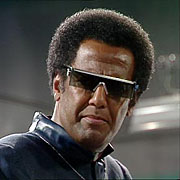|
-Blackadder- posted:Now if only they'd bring back Carnivale. Be still, my heart. I doubt that could ever happen, though...
|
|
|
|

|
| # ? May 25, 2024 17:32 |
|
Toxic Fart Syndrome posted:Be still, my heart. If only it were as likely as bringing back Deadwood?
|
|
|
|
gently caress, now I'm going to binge Deadwood all weekend.
|
|
|
|
Professor Shark posted:Uh, as the Doctor screams at God during his "evening prayers", a lot of people died terribly for no reason. Well, the Union guys died fighting to end slavery. Seems like a pretty good reason.
|
|
|
|
Phenotype posted:What was so utterly horrifying about the Civil War, anyway? Civil wars always are worse, industrial warfare was brand new, and about 3% of the US population died, which is a huge amount of war deaths in any society. Imagine how the US would feel today if we lost twelve million people in a war. What happened to the US in the Civil War is very comparable to what Europe went through in World War 1.
|
|
|
|
Okay, well, yes, war sucks and people die and you all live in close proximity before and after. I was really asking why kaworu felt the need to use so many scary adjectives and how the horror of it influenced Deadwood, because I don't know poo poo about the Civil War besides what I learned in school. (Slaves bad, Lincoln good, Union Generals incompetent, etc.)
|
|
|
|
They were using old style line formation tactics with accurate rifles instead of muskets.
|
|
|
|
It was almost a preview of how bad sticking with traditional column formations would work with weapons technology leaping ahead. I think it finally died out during WW1, but gatling guns, accurate artillery, repeating rifles, and iron clad warships were all around (and for most of those first used) during the Civil War. Both sides tore each other apart and basically waged total war on our own country. It was a horrible loving mess that had to happen to fix what was broken. There really was no way that war wasn't going to happen one way or another. edit: Phenotype posted:Okay, well, yes, war sucks and people die and you all live in close proximity before and after. I was really asking why kaworu felt the need to use so many scary adjectives and how the horror of it influenced Deadwood, because I don't know poo poo about the Civil War besides what I learned in school. (Slaves bad, Lincoln good, Union Generals incompetent, etc.) I have no idea what he was asking either. Pretty sure only a few of the characters had any connection to the Civil War at all. Doc Cochran was the one most affected by it. Jane and Charlie were scouts after the war. Little General Fields I think was a scout as well. Bullock's brother was in the union army. I think that might be it. Solice Kirsk fucked around with this message at 05:05 on Nov 30, 2018 |
|
|
|
Reverend Smith was a nurse during the war.
|
|
|
|
Cojawfee posted:Reverend Smith was a nurse during the war.
|
|
|
|
Phenotype posted:Okay, well, yes, war sucks and people die and you all live in close proximity before and after. I was really asking why kaworu felt the need to use so many scary adjectives and how the horror of it influenced Deadwood, because I don't know poo poo about the Civil War besides what I learned in school. (Slaves bad, Lincoln good, Union Generals incompetent, etc.) As someone mentioned before, the equivalent of 12 million people today died in the Civil War. 3% of the population. This is people who share a country killing each other in enormous numbers. For reference, the death toll in Syria over the past 5 years is something like 2 million. Multiply that by six today and you the sheer volume of dead people associated with the Civil War.
|
|
|
|
Also, like WWI, you'd have a bunch of people from the same area join up together and end up in the same unit. So a battle goes poorly and all of the men from one part of a state are dead.
|
|
|
|
Phenotype posted:Okay, well, yes, war sucks and people die and you all live in close proximity before and after. I was really asking why kaworu felt the need to use so many scary adjectives and how the horror of it influenced Deadwood, because I don't know poo poo about the Civil War besides what I learned in school. (Slaves bad, Lincoln good, Union Generals incompetent, etc.) I'm not a professional historian, but I'm an Am Lit professor whose specializations often overlap with Civil War studies so I'll give this a shot. It was the first US war that most civilians had first-hand experience with that truly was a modern industrialized war, that is, that was a vast red meat grinder that Americans kept being fed into. It turned vast swathes of populated land-- land that would have even in many cases been pastoral and idyllic days or even hours beforehand-- into abattoirs. Earlier 19th century wars-- especially Imperialist ventures like the Mexican-American War, various wars with Native American coalitions, and other forays in overseas expansion-- had made a lot of Americans, especially on the coasts, somewhat cocky about their young nation's trajectory. War in the popular imagination by the 1860s was often represented as a lark or an adventure suitable for young mens' and boys' fiction. As it played out on paper, technological advancements made war faster, more efficient, and cleaner. This of course did not turn out to be the case. Even if you weren't in physical proximity to a major battle, it was one of the first wars to intersect with the burgeoning field of photojournalism. People in New York and Philadelphia and Boston could see the carnage, albeit a mediated version of it. Even if these photos were often staged to greater or lesser degrees, this meant that the spectacle of ruined bodies was unavoidable, and even if only in the fantasies of urban citizens, it was impossible not to impose this spectacle into visions of the war extending into major cosmopolitan centers. It wasn't something anyone could escape, mentally and emotionally. It's also impossible to overstate the trauma that it inflicted on nearly every American industry in nearly every American region. Reconstruction was founded on some really forward-thinking ideas but resistance from every social strata of the white South turned it into the basis of a running war of sorts for decades afterwards and even up North industries were disrupted for years and years in the war's wake. Not to mention that the war was of course predicated on deep, deep fissures that had been yanking at the foundations of what constituted a ramshackle "national consciousness," since the 1770s and it didn't mend many of them. There's a reason American Spiritualism underwent such a boom during and after the war-- death was the only narrative thread that seemed to tie the American psyche together, and very few elements of daily life could be conducted without the affective presence of grief and trauma. It would be totally fair I think to describe the 1870s and 1880s as post-apocalyptic in a very real way. Drew Gilpin Faust's This Republic of Death is a good intro to these topics. On the subject of the national culture of elegy and elegaic poetry in particular American Elegy by Max Cavitch has excellent material on the post-war years IIRC. Brenda Wineapple's Ecstatic Nation covers much more than just the Civil War but its compulsively readable and a good general history of how national myth shaped itself in the period. Free Spirits by Mark Lause is imperfect but is solid on the intersection of the Civil War, cultural anxieties, and Spiritualism. Remember that this was an era before shell-shock and PTSD existed as terms. If you were irreparably hosed for life by your proximity to trauma, you were just hosed for life. Jonathan White's Darknes in America is a hyper-focused study on sleep and dreams in Civil War documents and a little finnicky but also remarkably moving at times. On a similar note, Kathryn Gi Lum's Damned Nation: Hell in America from the Revolution to the Reconstruction is a broad survey covering a long period of time, but her Civil War material is heartbreaking, and explores how the sheer scale of violence and death, as well as the unpredictability, forced American theology to forcibly adapt how it conceptualized atonement, damnation, and salvation-- chaplains simply physically could not tend to the mountains of dying. Finally, this is a brand new one that I haven't finished-- it just came into my dept this month-- but Aaron Sheehan Dean's The Calculus of Violence: How Americans Fought the Civil War is devestating and really details how the quantitative violence of the war was simply enacted on a level unfathomable by everyone from generals to preachers to soldiers to politicians to civilians and everyone else. I don't 100% buy into his argument but his point is that a lot of the rhetoric and strategizing was about how to mitigate and control this vastly increased technical capacity for violence, successfully or just as often unsuccessfully. Basically, it wasn't just a really especially violent war, although it was. It gutted American culture from top to bottom. How Wonderful! fucked around with this message at 22:50 on Nov 30, 2018 |
|
|
|
Archyduchess posted:There's a reason American Spiritualism underwent such a boom during and after the war-- death was the only narrative thread that seemed to tie the American psyche together, and very few elements of daily life could be conducted without the affective presence of grief and trauma. It would be totally fair I think to describe the 1870s and 1880s as post-apocalyptic in a very real way. That was a really great post but especially that part there. I'd been trying to figure out the appeal of romanticized post-apocalyptic fiction over the last decade or so and I think you alluded to it in what you said: there's a kind of American pioneer, phoenix-from-the-ashes vibe of starting over that you really only find in post-war Manifest Destiny (and also in Fallout: New Vegas, which I think is what makes it such a thematically rich game). A viewer without any historical context could watch Deadwood as post-apoc fiction and still come away with the vibe of the old lovely world (Hearst) triumphant over the hope of a new one.
|
|
|
|
Solice Kirsk posted:Well, the Union guys died fighting to end slavery. Seems like a pretty good reason. "Died for no reason" in the sense that it never should have come to war, the South should have moved away from slavery and many people would not have had to suffer horribly and die. I wholeheartedly agree that the end of slavery was absolutely necessary.
|
|
|
|
Archyduchess posted:I'm not a professional historian, but I'm an Am Lit professor whose specializations often overlap with Civil War studies so I'll give this a shot. This is a great post and I'm sure it'd be appreciated if you cross posted to the milhist thread in a/t :-)
|
|
|
|
Fantastic post Archyduchess - you put that a lot better than I could have. Saying that it traumatized the entire country and sort of gutted American culture and shattered a lot of romantic illusions and dreams that people had about... a lot of things is quite true. All sorts of aspects of their lives was also gone forever in the case of the south, which of course suffered the most in the wake of the Civil War by far. Some would argue that much of the south *still* has yet to fully recover economically, and I'd actually agree to some extent. Perhaps they'll never fully recover - they certainly can't from a cultural standpoint. Think about the fact that ONLY in the last couple years have Confederate monuments and statues started to come down en masse, and even still there are places where the Stars and Bars'll probably always fly. I think it's very difficult for us to really comprehend just how profoundly it affected people at the time though, really. I can only imagine that the way a human life was fundamentally valued was very different, at the time. And just to speak to the brutality of the combat, as it was pointed out the technology of war was in an especially vicious place. Battles were fought generally with large-caliber rifles (more precise than muskets but stil brutally large balls of steel) and bayonets (old-school cannons for artillery) and if you got shot in, say, an arm or a leg, it would usually shatter the bone past medical help, insuring the limb in question would need to be amputated - and boy were a lot of limbs amputated in that war. Bayonet wounds weren't particularly kind either. Battles were close, brutal, intimate affairs and the rate of carnage seemed astronomical to people at the time. Remember this was before antibiotics, and you had these soldiers who were already going through hell and living in horribly filthy conditions, so you were pretty lucky if you got shot or cut and didn't die of sepsis. In Deadwood for instance, Reverend Smith talks about being at the battle of Shiloh as a medic which was where he "got his calling", which frankly explains a lot about the minister.. Shiloh was one of the most brutal, bloody battles in the entire war - some 20,000 casualties accumulated on *both sides*, with about 3,000 of them dying - all that in just *2 days* of fighting. That might not seem too extreme in the 21st century, but at the time I believe it was the first time anywhere near so many men were killed/hurt in such few days of fighting. Though, that record was soon surpassed at Antietam, then ultimately surpassed by Gettysburg. If you were a field medic at Shiloh and had any sort of compassion in you, I would imagine that the two options were basically insanity and getting religion (most likely both) so it does explain quite a bit about Smith's character kaworu fucked around with this message at 02:24 on Dec 1, 2018 |
|
|
|
kaworu posted:In Deadwood for instance, Reverend Smith talks about being at the battle of Shiloh as a medic which was where he "got his calling", which frankly explains a lot about the minister.. Shiloh was one of the most brutal, bloody battles in the entire war - some 20,000 casualties accumulated on *both sides*, with about 3,000 of them dying - all that in just *2 days* of fighting. That might not seem too extreme in the 21st century, but at the time I believe it was the first time anywhere near so many men were killed/hurt in such few days of fighting. Though, that record was soon surpassed at Antietam, then ultimately surpassed by Gettysburg. If you were a field medic at Shiloh and had any sort of compassion in you, I would imagine that the two options were basically insanity and getting religion (most likely both) so it does explain quite a bit about Smith's character This is really fascinating, thanks
|
|
|
|
Men would also like on the battlefield for hours or even days before someone could get to them. There was a story of wounded men lying in a field over night and that the men who survived had a mysterious blue glow about them. People thought that it was some sort of miracle, but it was actually some nematode or something that glows blue. It vomits up bacteria to digest things and then eats the bacteria to harvest what the bacteria digested. This bacteria killed the bad pathogens in the men's wounds and kept them alive.
|
|
|
|
There's also the basic fact underlying many Western stories: a lot of traumatized veterans who tried to go home after the war and didn't fit in to that society anymore had a convenient place to head off to: the frontier.
|
|
|
|
Cojawfee posted:Men would also like on the battlefield for hours or even days before someone could get to them. There was a story of wounded men lying in a field over night and that the men who survived had a mysterious blue glow about them. People thought that it was some sort of miracle, but it was actually some nematode or something that glows blue. It vomits up bacteria to digest things and then eats the bacteria to harvest what the bacteria digested. This bacteria killed the bad pathogens in the men's wounds and kept them alive. That's so goddamn fascinating and cool about the nematodes! I'd never read about that before, and to be honesty when I first read your post I thought it had to be bullshit or something because it seemed so far out, but nope. 100% true. The soil bacterium Photorhabdus luminescens which is present only in nematodes (who, unlike the show Doub would have us believe, are tiny parasitic worms that usually burrow into insect larvae (maggots) in the soil or into plants, and vomit up this Photorhabdus luminescens which is the bacterium that killed the host larvae.. Why this was so exceptional and bizarre is that nematodes would typically die from the simple heat of a human body before the Photorhabdus luminescens it vomits could release the chemicals that destroy the host larvae and any other microorganisms - this is how the nematodes saved the soldiers and gave them the ghostly bio-luminescent glow, and they could only have done it *because* the soldiers were freezing cold lying on wet soil in early April. Also of note - this incident with the nematodes actually happened after The Battle of Shiloh, which was in Tennessee April 6-7 1862 if memory holds. And I'd apparently forgotten, but Reverend Smith also claims being at Second Manassas, AKA The Battle of Bull Run. If you recall history, this happened... well, late in the summer of 1862 as I recall, and was a battle that the Union army should have won by all rights, but lost due to a combination of the ineptitude of Union General John Pope (whom I believe was subsequently relieved by Lincoln) and the unparalleled strategic genius of Robert E. Lee. Lincoln was basically furious that his senior general at the time, McClellan, was being entirely too conservative and not doing enough to proactively use his superiority in numbers and discipline effectively to bear on Lee. This backfired tremendously when he appointed Pope to lead the Virgina army, and the result was that Lee correctly guessed how the impatience of Lincoln and the conservativeness of McClellan (whom I believe Lee had personally worked with a great deal prior to Secession and knew quite well) would play it, and he used that to GREAT effect in Second Manassas. It may not have been as awful as Shiloh earlier in the year, but it was plenty horrific and terrible. It was also an especially demoralizing loss for Lincoln and the Union... It was in the winter following the disastrous summer of 1862 (for the Union) that Lincoln issued his Emancipation Proclamation - as much as a measure to do everything possible to win the war as it was a statement of his own personal ethical beliefs, but I probably don't need to get into all that. But it really was a fascinating decision - the war was NOT about ending slavery until that Proclamation, it was about maintaining the union. By making an explicit statement that slavery was unethical, it was basically Lincoln changed the goalposts and essentially re-energize his cause... Plus hopefully inspiring slaves to flee the south and join the Union Army to fight for their peoples freedom. But in many ways it was also a response to the horrifying possibility that the North MIGHT really and truly lose this war somehow, and I don't think that the Union truly saw that as a possibility before then. Ugh, history. I am glad you guys find this stuff interesting - The Civil War is a truly remarkable time in American History, and I'd say it's worth studying at the moment. edit: Oh, and as an addendum to all of this, I'm currently in the midst of re-reading Robert Caro's 4-part biography of Lyndon Johnson, and the current one I'm on is called Master of the Senate and is all about Johnson, a fairly young and idealistic senator at the time, was SO intelligent and driven and motivated that after he was elected to the Senate in 1948 (at the time the Senate had an even worse reputation for archaic uselessness than it does even now) and through all kinds of wheeling and dealing and just running intellectual circles around everyone else, became the youngest majority leader in history and proceeded to past the first Civil Rights legislation (in the 1950's) that had literally been passed since reconstruction. If you ever find yourself wondering how the Democrats went from what they HAD BEEN to cementing their reputation as the party of new-deal socialism, liberalism, and progressive politics, then LBJ is really the missing link. Not to discount FDR, but he's always been much more popular and loved and more easily understood than LBJ in many ways. I mean, Johnson's the democratic Southerner who presided over the passing of The Civil Rights Act of 1965. I almost view the biography and the political story of LBJ as being rather bound up in the political/racial issues and realities that were plaguing post-war (WW2 in this case) America at the time - segregation, Jim Crow laws, black folks not having the vote... These things were even becoming hopelessly anachronistic in the south by 1950, in many ways. Not to mention the cognitive dissonance about the war against fascism we had just fought, and the fact that, like the Germans, we still isolated a racial class of people in America and didn't provide them with the same full and equal rights as white Americans. Anyway I'll stop, I just feel like I have to recommend Caro as much as possible to people who have never read his stuff. His biography of Johnson is just, in short, the greatest political writing I've ever read. I would frankly recommend anyone to start with Book 3, Master of the Senate, which is really the most intriguing and fascinating and eye-opening of all the 4 books, IMO. kaworu fucked around with this message at 15:26 on Dec 1, 2018 |
|
|
|
Thanks for the responses, you guys are fantastic. Up until now I had always thought of WWI as the first war where modern technology really turned up the death toll -- I'd always pictured Civil War battles as basically the same as the ones in the early 1800s, where people stand in lines with inaccurate, slow-to-load guns, fire a volley or two, and one side ends up routing and running away or surrendering. I could swear I'm remembering a line from elementary school about how more people died on the march than in actual battles, but maybe that was the American Revolution or some other war. I didn't think very many people typically died in a battle till the 1900s at least. What was it that killed so many people? Doing a quick google, I see that the Gatling gun had just been invented "to reduce the size of armies and so reduce the number of deaths by combat and disease, and to show how futile war is." I'm guessing that was a big part, combined with railroads to bring more people to the battles?
|
|
|
|
Part of what killed so many people was simply, as you said, very large armies were able to mobilize fairly effectively. But the other part of this is just how intractable both sides had become; the longer the war went on and the more people died on both sides, the more utterly dedicated either side was (perhaps the confederates had a bigger reputation for this). So both sides were literally throwing every ounce of their strength and people into winning this war. Ever hear the term "Attrition"? Warfare by attrition? It means trying to win a war where neither side will easily surrender (like the ACW) by allowing essentially vast numbers of troops on both sides to fight to the death, in the knowledge that because your side ultimately has more resources and people at their disposal, they will still be left standing at the end. This was the strategy that Ulysses S. Grant employed (endorsed and supported by Lincoln) to painfully grind down the confederate army by grinding down his own army in the process. This is a BIG reason why the war was so bloody.. I mean, there's a reason why Archyduchess referred to it as a meat grinder; that's precisely what it was, for both sides. Bloody as it was, the Union did win in the end. But in a real sense, I always view the African-Americans as the only true "winners" in the Civil War.. The union suffered a great deal, I think there's a decent argument to be made that amidst all the horror the one truly great positive was the passing of the 13th Amendment. I know most have seen it, but Lincoln really is a fabulously wonderful film specifically about this subject. DDL is of course jaw-dropping as Lincoln, but it's Tommy Lee Jones playing Thaddeus Stevens really steals the show I think. I actually think the film is sort of apropos to Deadwood.. In fact, it rather reminded me of Deadwood in terms off actually portraying the gritty and dirty reality of the ~1860-70s, rather than the long-romanticized pastiche of it that we're rather more used to seeing, even today in many westerns.
|
|
|
|
By the end of the Civil War, it looked much like things would through WWI: trench warfare, machine guns, trains supplying soldiers as fast as they can be killed, all of it. Except for the uniforms, pictures from the end of the Civil War look just like the battlefields of France...
|
|
|
|
This whole conversation is really interesting. Thank you to all of you for it. As a Brit I really knew very little about the American Civil War outside of the broad strokes before just now basically.
|
|
|
|
Phenotype posted:Up until now I had always thought of WWI as the first war where modern technology really turned up the death toll -- I'd always pictured Civil War battles as basically the same as the ones in the early 1800s, where people stand in lines with inaccurate, slow-to-load guns, fire a volley or two, and one side ends up routing and running away or surrendering. The Civil War is very interesting as a preview of WW1 and what industrial warfare would bring. A lot of Europeans came over to observe the war and note all the new technologies, then went back home and made the exact same mistakes themselves. Look up pictures of the Siege of Richmond/Petersburg at the end of the war and it really brings it home.  Famous shot of a tiny part of the trenches.
|
|
|
|
Isn't that the nature of a big war machine? One method gets ingrained in the leadership. As long as they can make the numbers look good, everything looks like it's going great. It happened in Vietnam by fighting the same way WWII was fought. We killed a lot of communists so it seemed like things were going well. You can't grind your machine down against the other war machine when the other side doesn't have a war machine. There weren't factories and vast supply lines to bomb. It was just people in a jungle using weapons left by the previous occupying nation.
|
|
|
|
kaworu posted:That's so goddamn fascinating and cool about the nematodes! I'd never read about that before, and to be honesty when I first read your post I thought it had to be bullshit or something because it seemed so far out, but nope. 100% true. The soil bacterium Photorhabdus luminescens which is present only in nematodes (who, unlike the show Doub would have us believe, are tiny parasitic worms that usually burrow into insect larvae (maggots) in the soil or into plants, and vomit up this Photorhabdus luminescens which is the bacterium that killed the host larvae.. I like you very much and have this book (Master of the Senate) queued up after I finish Christopher Hitchens' Jefferson bio and James Forman Jr's Locking Up Our Own.
|
|
|
|
Yeah, technological advances in destroying bodies basically proceeded asymetrically with technological advances in medicine and surgery, and it's a lot easier to mobilize a lot of young men who can put on a uniform and get chewed up by bullets than it is to mobilize an appropriately proportionate amount of qualified doctors, medics, and nurses. Volunteer nurses and impromptu hospitals in urban centers were a big thing. The nicely curated park near where I live was once the site of Satterlee Hospital, an encampment on a tiny little nook of the property where over 12,000-60,000 (a huge range, but sorry, that's Civil War record-keeping, and even the Quaker fastidiousness of 19th century Philly can't help us much) Union soldiers were treated. This was one of the nicer and more effective Civil War hosptals-- out of those thousands of patients only 260 died, mostly thanks to the idiosyncratic and forward-thinking leadership of famous surgeon and Arctic explorer Isaac Hayes (not that Isaac Hayes) and the presence of an in-house nursing staff of nuns. Still, whenever I walk my dogs, I think about how cramped and tiny the chunk of the park that this hospital used to be was, and how, improbably, 4,500 beds were crammed into a space undergrads routinely and casually chuck frisbees across.  Satterlee as it was in 1869, as far as I can find still basically intact from the war.  Clark Park in the 21st century-- as near as I can tell this could be a view from one of Satterlee's hospital beds. Later today I might be a dork and try to go get a shot from a more accurate spot. Washington D.C. alone housed 56 separate medical facilities for Civil War casualties and saw over 18,000 deaths. Walt Whitman, one of *The Great American Poets*, volunteered at many of these throughout the war and writes very movingly about them in his letters, diaries, published prose, and poetry. It's striking that even with the profound shortage of hands on deck as it were, medical science was at a point where it was difficult to find things for these volunteers to do, and I often get the sense of a reversion to a late-medieval medical ethos of just making people as comfortable as they can in a terminal situation. He writes about just handing out candy, playing 20 questions, and making ice-cream runs for people who he knows will definitely be dead very soon. He wrote letters home to soldiers who either couldn't write due to injuries or just couldn't write period, in some cases out of necessity inventing words for them to tell their parents or wives or children that they wouldn't be coming home. From his poem, "The Wound-Dresser": quote:Bearing the bandages, water and sponge, Here's an excerpt from a letter Whitman wrote home to his own mom about Oscar Cunningham, a young soldier who Whitman had befriended over the course of May, 1863: quote:I have just left Oscar Cunningham, the Ohio boy—he is in a dying condition—there is no hope for him—it would draw tears from the hardest heart to look at him—his is all wasted away to a skeleton, & looks like some one fifty years old—you remember I told you a year ago, when he was first brought in, I thought him the noblest specimen of a young western man I had seen, a real giant in size, & always with a smile on his face—O what a change, he has long been very irritable, to every one but me, & his frame is all wasted away. According to Jeffrey Sartin his article "Infectious Diseases During the Civil War: The Triumph of the 'Third Army"" more than 2/3 of the 650,000+ deaths in the war were due to a mix of infection, malaria, typhoid, dysentary, pneumonia, and a host of other dismal and painful ways to die. Epidemics were common and often dictated when and how troops would mobilize. Remember that although of course the US was nowhere near as densely populated as it is today, battles and troop movements criss-crossed through farms, villages, skirted towns, razed cities. Squalid conditions in camps-- oppressively crowded camps in inclement, even hostile weather-- ravaged the soldiers in them, but waste and disease trickled down (often, literally, trickled downstream) to civilian populations too. Disrupted or just plain insufficient supply trains meant soldiers in camps faced starvation. Soldiers facing starvation raided farms, plundered fields, and generally left a minor string of famines behind them.This isn't unique to the Civil War (Lauro Martines' Furies: War in Europe, 1450-1700), is a good overview rich in primary sources about the logistics of feeding and moving armies in early modern Europe and notwithstanding the revolutionary introduction of rail a lot remained the same for a long, long time) but in its scale and its proximity to "normal life" for many Americans, it absolutely was. This page has a number of nicely organized infographics that might be useful. I generally have a hard time mustering any sympathy for the Confederate troops (and I'm a Southern girl by birth myself) but look at the "Civil War by Population" chart and compare the "eligible but did not serve" bars. The South by necessity enforced a policy of near total conscription. Nobody got to suffer the war at a distance. How Wonderful! fucked around with this message at 19:16 on Dec 1, 2018 |
|
|
|
Archyduchess posted:out of those thousands of patients only 260 died, mostly thanks to the idiosyncratic and forward-thinking leadership of famous surgeon and Arctic explorer Isaac Hayes (not that Isaac Hayes) Hate to nitpick, but YES THAT ISAAC HAYES
|
|
|
|
Archyduchess posted:Nobody got to suffer the war at a distance. In all seriousness, this is really the key to everything for me. It is difficult to even imagine what it would be like to have such a gigantic war happening in your own country, before advances in medicine and technology could mitigate the most horrific diseases and injuries and, as one has mentioned above, having images of war torn soldiers and battlefields for the first time, people were suffering the war in a very intimate pervasive way which was inescapable to even a fairly isolated citizen. It shackled the entirety of American culture and you know what, now I am fascinated in reading a lot more about Reconstruction in a cultural sense, what was going through people's everyday minds in society. Who can recommend me some books about that? How did the Civil War humble Americans? How did it manifest in the years after?
|
|
|
|
I can't imagine just sitting in my little farm house and then seeing two armies marching from either side and then they start shooting each other right in front of me. People would sometimes go to the battlefield to watch the war happen, not realizing how horrific it was about to be.
|
|
|
|
The period after the war also saw one of the worst drug epidemics in US history, morphine being abused by the huge number of crippled veterans and also spreading into the general population. The current US opioid epidemic is bad but not even close to the couple of decades after the Civil War. Fortunately there was a new wonder drug to get you off morphine and heroin--cocaine!
|
|
|
|
Also there's the surreal aspect of the war occurring at home which fascinates us. Like the UK, and unlike a lot of the Middle East, Africa, Asia, South America, and a lot of Europe, we have no conception of our safe country being a bloody warzone in living memory. We are so removed from it, we can't fathom our safe cities and towns being reduced to utter rubble, tanks going down our streets, etc. That picture of Richmond is a good example. Now that's just some nice safe small rural town. The Battle of Nashville looked like this:  Now it looks like this:  It's one thing to send troops over to fight and they come home. It's another to have the war in your town. No wonder a lot of people headed west. For example, there was a minor exodus of people from places like Tennessee going to Texas in the decades following the war. They wanted to leave that all behind and start over. Deadwood would be an example of this.
|
|
|
|
Richmond itself at the end of the war.  Photography was a big deal too, bringing the war home to people. Before this if you weren't in the battle zone, you had no real idea what was going on, just stories. I think its effect is a lot like what happened later with Vietnam being the first war that was right there on your TV every night. Grand Fromage fucked around with this message at 19:45 on Dec 1, 2018 |
|
|
|
Are those cannon balls? Were they collected and put there, or is that where they laid after being fired?
|
|
|
|
They are. The scattered ones are just where they landed, the piles are being collected for disposal.
|
|
|
|
This whole conversation has definitely been cool - people who know more about this than me have been very informative and made me want to, well, check out more about how it all went down. Also, I can't say I'm a *huge* fan of Ken Burns, but I found his documentary series on the Civil War to be fairly decent if you want a general overview of the war... It's certainly not perfect and can be a bit much at times if you're the sort of person who isn't particularly imaginative or easily bored by a lot of talking and slow zoomouts of photographs, heh. It's not like there's any video of what happened, but there are endless photographs in the documentary that are pretty great, and maps and illustrations of how many of the key battles played out. I'd have to say that it was worth watching if only as a solid and fairly complete record/overview of the major battles and events of the war, plus it's a very nice presentation of a lot of great photographs and gives some solid and varying perspectives on certain events. It's not BAD, it's not even mediocre - it's just not all that exceptional or great. But as it's on Netflx (at least in the USA) it's very available. kaworu fucked around with this message at 20:38 on Dec 1, 2018 |
|
|
|
kaworu posted:This whole conversation has definitely been cool - people who know more about this than me have been very informative and made me want to, well, check out more about how it all went down. I remember watching this a long time ago and was fascinated by it, but I’m wondering if there’s anything you’d recommend above it?
|
|
|
|

|
| # ? May 25, 2024 17:32 |
|
I remember Gettysburg and Gods and Generals being well done period pieces, but I honestly haven't seen either one in 15 years...
|
|
|



























